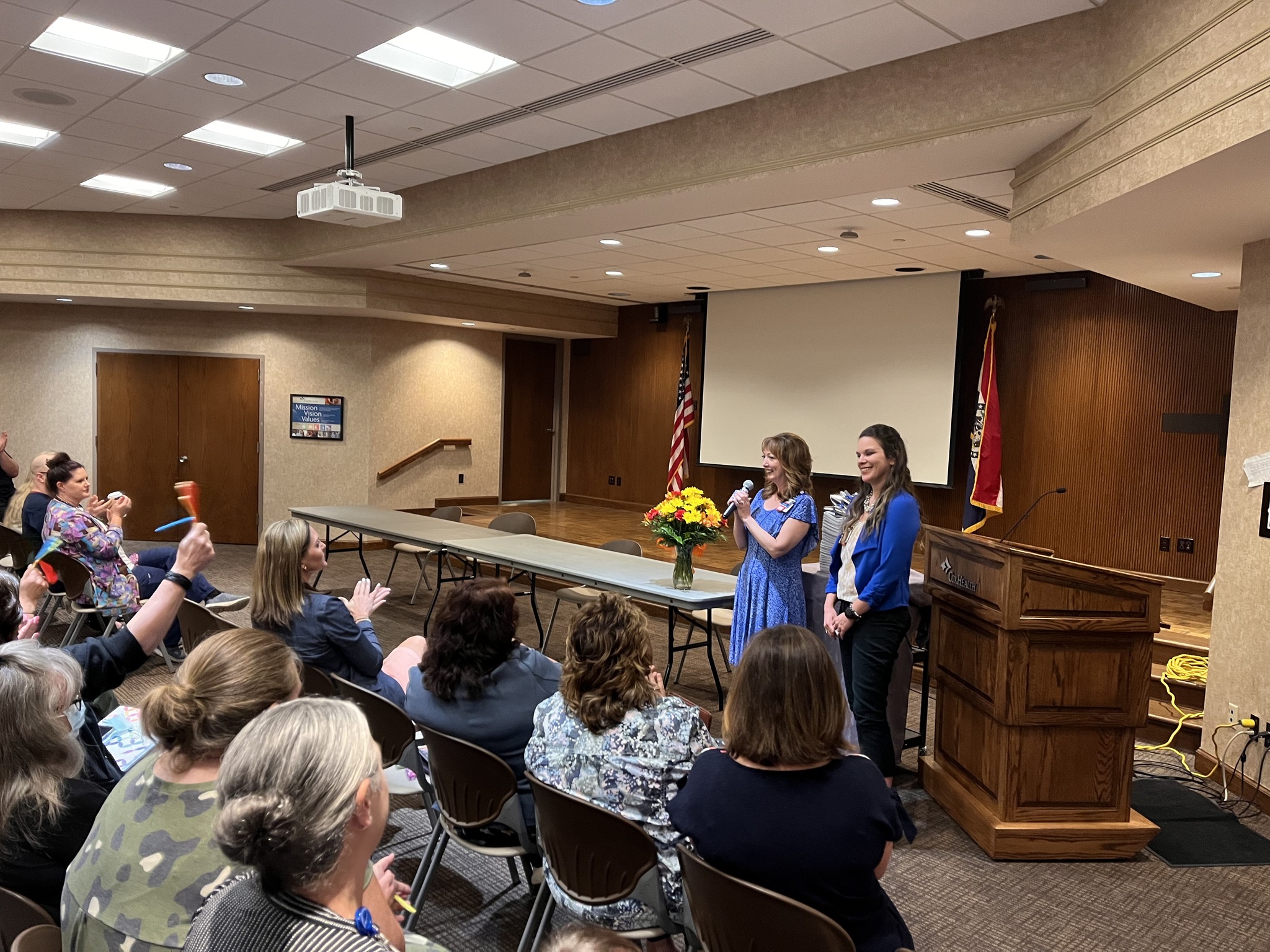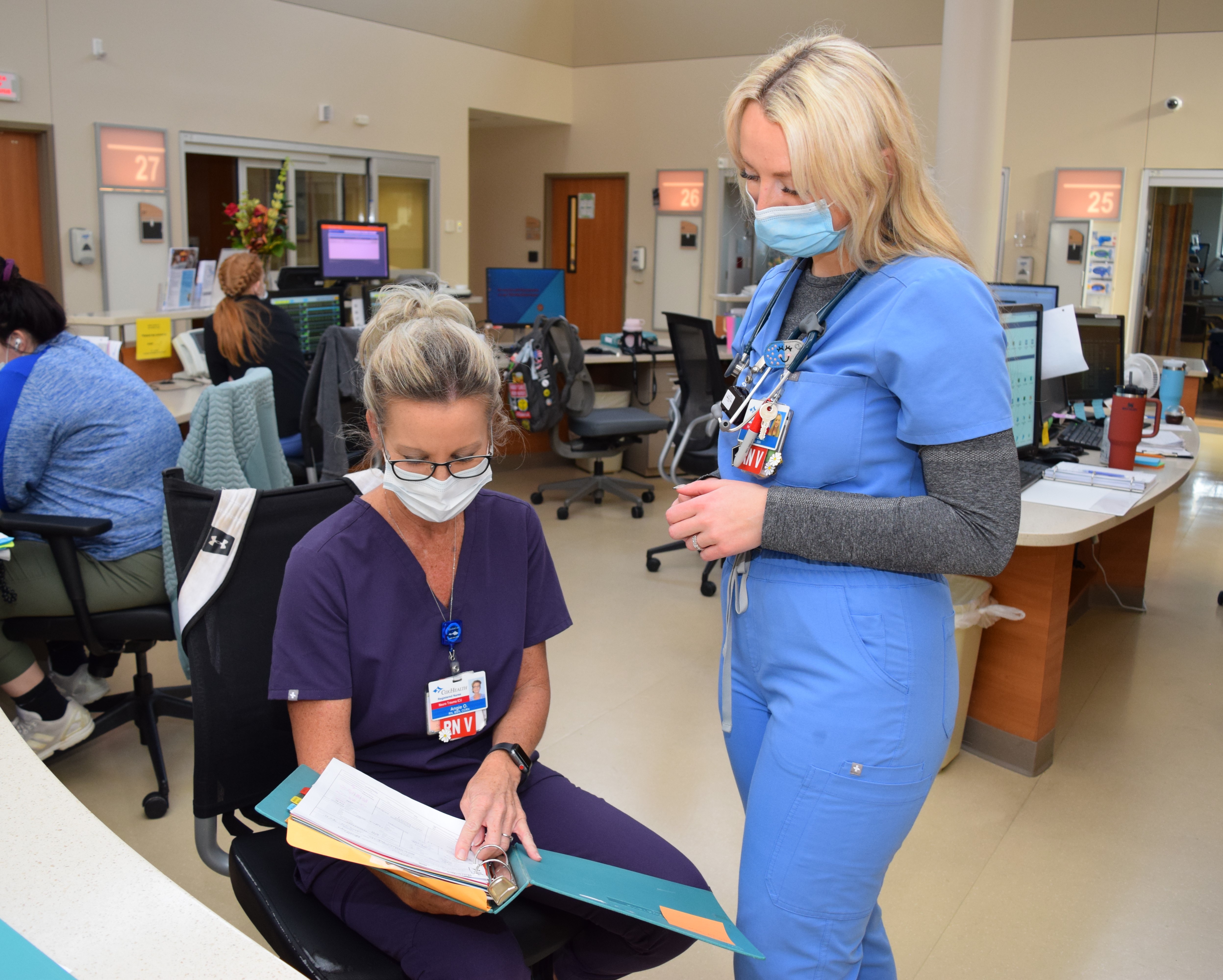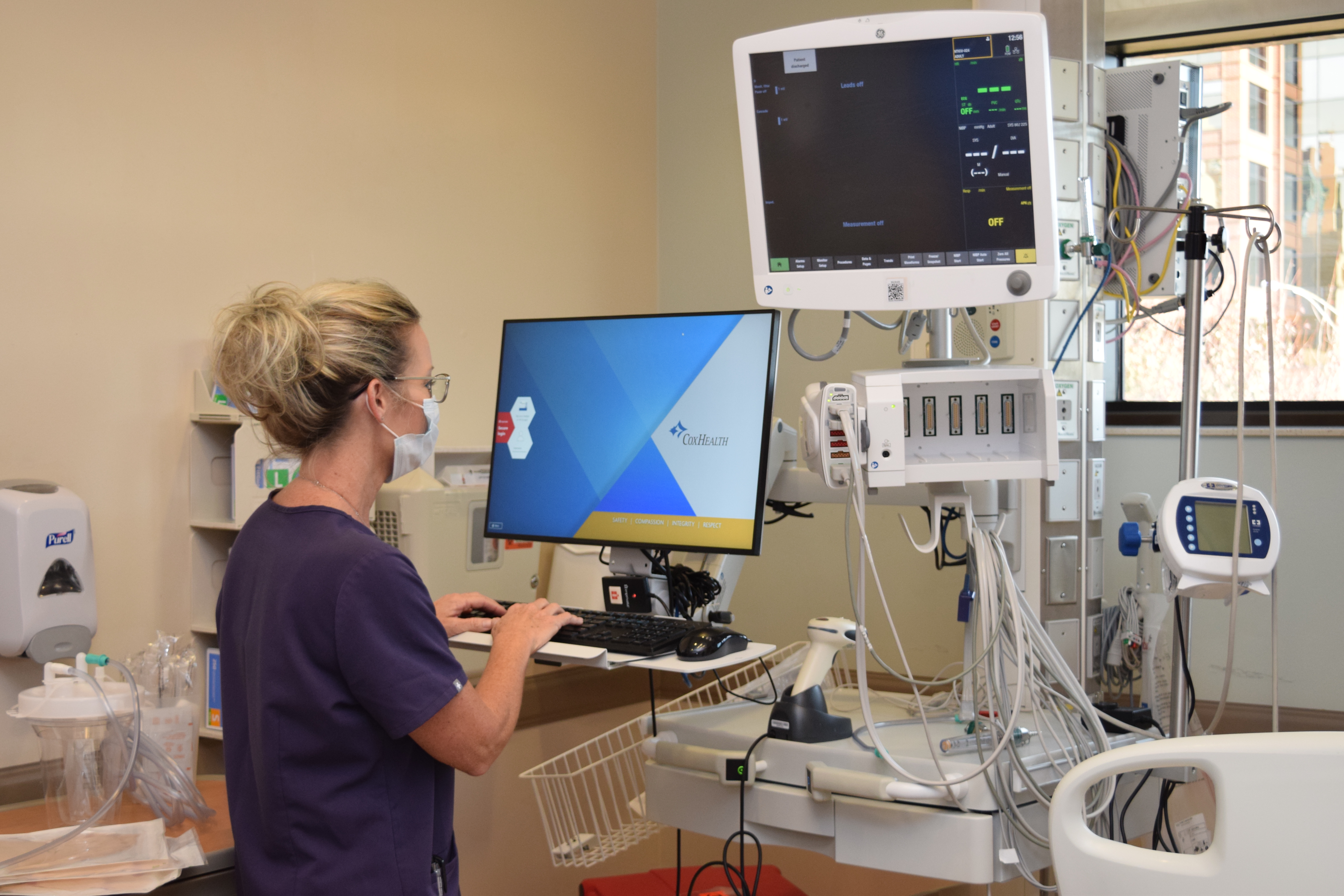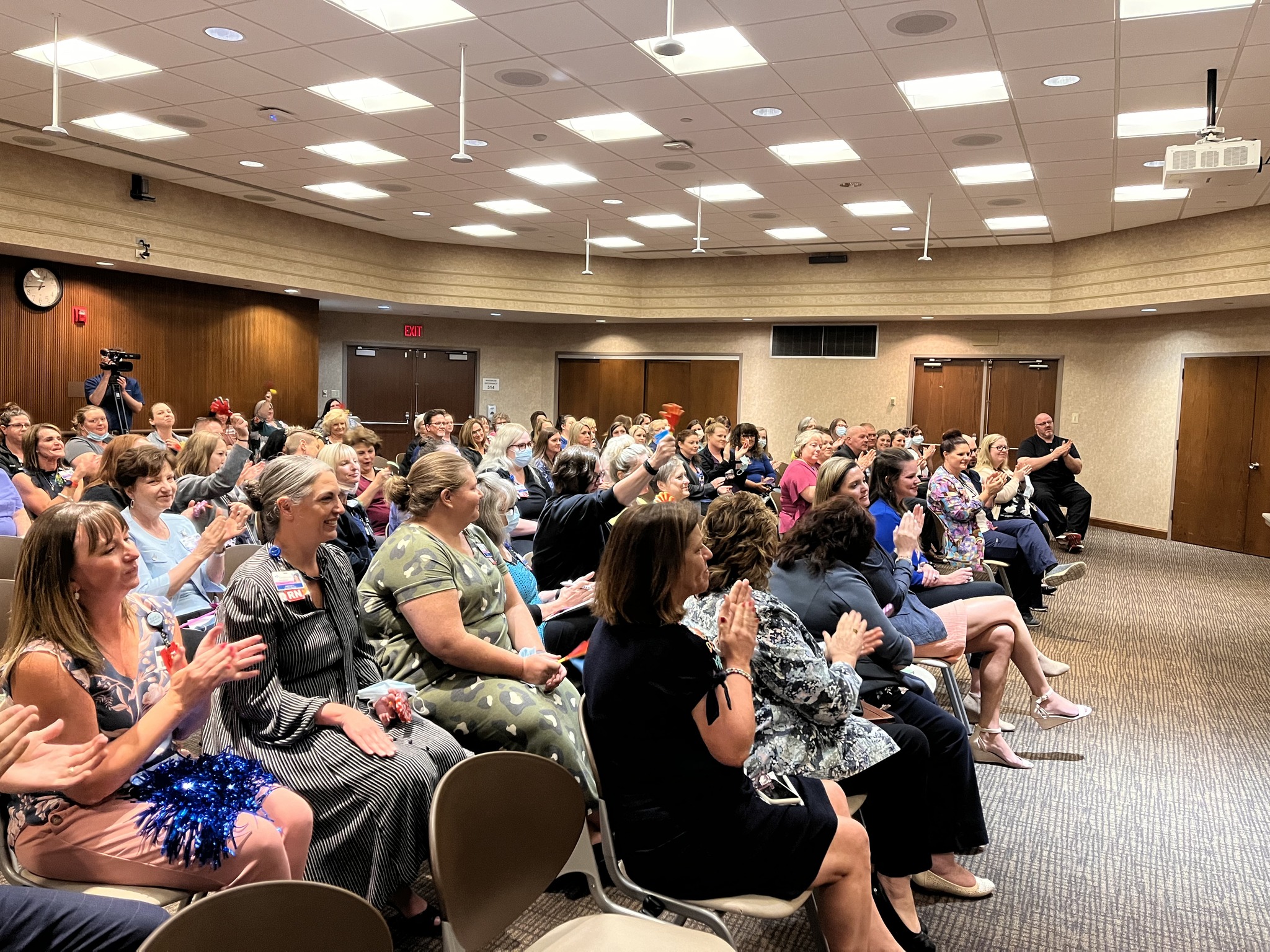Springfield’s CoxHealth has been awarded the esteemed Magnet status, which recognizes hospital systems for professional nursing practice.
Cox joins a list of fewer than 600 out of more than 6,000 U.S. hospitals to receive this recognition from the American Nurses Credentialing Center (ANCC). They are the first hospital system in the region and the eighth in Missouri to achieve Magnet status.
What does Magnet status mean?
ANCC’s Magnet Recognition Program, established in 1983, is awarded to hospitals that meet and exceed standards of nurse satisfaction, nurse-influenced patient satisfaction and overall patient outcomes.
“This is a significant milestone for our organization,” Beth Polivka, CoxHealth’s system chief nursing officer, said in an October news release. “Magnet is not just a designation, but a reflection of meeting the highest standards in nursing practice that support excellence for patient care. We are honored to be recognized by the ANCC Magnet Recognition Program for demonstrating the culture, processes, and structures that support best nursing practices.”

According to the release, the distinction recognizes all of the following CoxHealth facilities in Springfield: Cox South, Cox North, Meyer Orthopedic and Rehabilitation Hospital, CoxHealth Surgery Center, the Martin Center, and hospital-based services in Hulston Cancer Center and Wheeler Heart and Vascular Center.
Kaylie Weltsch, CoxHealth’s Magnet program coordinator, said that the Magnet recognition is twofold — referencing that it highlights their “standard of excellence” for both patients and staff.
“Magnet means that we are continually striving to provide a higher quality of care,” Weltsch said. “That's anywhere from the frontline nurses who are caring for patients all the way up to our most senior leaders, and continually working to improve that working environment for our employees as well.”

The ANCC, the credentialing arm of the American Nurses Association, awards Magnet statuses to hospitals globally, although primarily in the United States. It is composed of several departments that recognize both organizations and individuals for advanced nursing care.
“The Magnet Recognition Program designates organizations worldwide where nursing leaders successfully align their nursing strategic goals to improve the organization’s patient outcomes,” the ANCC’s website says. “The Magnet Recognition Program provides a roadmap to nursing excellence, which benefits the whole of an organization.”
Weltsch attributed the success of their nursing program, which consequently led them to Magnet status, to Karen Kramer. Kramer, who retired in February of this year, held many leadership roles at CoxHealth, including as the former vice president of nursing, senior vice president and chief hospital officer.

“She was really the trailblazer and the champion for nursing here,” Weltsch said.
Who’s eligible, and how they attain honors
In order to achieve Magnet status, eligible hospital systems have to go through a multi-year application process, and the recognition lasts for four years, at which point recipients have to reapply in order to maintain the status.
CoxHealth submitted documents detailing 94 different standards that demonstrated their merit. Additionally, a team of appraisers conducted a three day on-site visit to Cox, including holding focus groups and evaluating community involvement with hundreds of staff.

“There may be hospitals that have great outcomes that are not Magnet designated, because they've not chosen to go through the application process,” said Lynn Newberry, education and outreach manager from ANCC Magnet staff.
ANCC lists five model components that Magnet hospitals are able to demonstrate through their nursing and nursing-supportive operations:
- Transformational leadership
- Structural empowerment
- Exemplary professional practice
- New knowledge, innovation and improvements
- Empirical quality results
Overarching each of these factors is an acknowledgement of global issues in nursing and health care.
Newberry said that for a hospital to meet all of the criteria has been especially tough in recent years amid staffing shortages and challenges in meeting patient satisfaction.
“Knowing all of these things, there are many pieces within the Magnet model that focus on work environment, the nurses having a voice with shared decision making, shared governance structures,” Newberry said. “A magnet organization really does go back to looking at what is the front line staff able to do? What is their voice? And how can they really help drive practice?
“Organizations using the Magnet Framework are poised to address many of the challenges we face in today's world.”
Weltsch said the challenges they faced and overcame helped their case in seeking Magnet status — by showing nurses and hospital staff of other disciplines work together to improve patient outcomes, satisfaction and working relationships.
“Those are all things that Magnet sees as values and standards a hospital should be working towards,” she said. “And really you could take almost any problem on a daily basis. And it’s the way you approach problems and the way you continually strive to improve.”
More than an honorary title: Magnet status a tool for future success
Despite the Magnet status being a testament to their ability to run an effective nursing program, their newfound recognition could accelerate even more success.
A Magnet designation gives hospitals extra points during the ranking and rating process for the US News and World Report, which scores health care facilities across multiple categories. In turn, a higher score could result in improved recruitment and retention for staff — and patients.

“This designation demonstrates that we are an employer of choice and a destination for those who need care,” Weltsch said in the news release. “This distinction is also a huge influencer for our workforce. It establishes to both new and experienced nurses who are considering employment opportunities that both culture and leadership in the organization support nursing practice.
“However, it also validates the importance and the value that our existing workforce delivers directly to the lives within their hands every day.”
Newberry reiterated what Weltsch said and provided background on the early days of the Magnet Recognition Program; the term “Magnet” started being used once ANCC established 14 forces of Magnet that had a positive effect on a hospital, whether through patient outcomes, a good work environment, etc..
“From a marketing standpoint, this is an opportunity for organizations to be able to say that they are Magnet designated,” Newberry said. “From an organizational standpoint, it really does benefit everyone.”
Weltsch underscored that the Magnet status was evidence of CoxHealth’s ability to continuously strive to improve and find innovative ways to empower and support nursing staff. Due to being required to reapply in four years, they have even more encouragement to continue curating a strong workplace culture and build on their current successes.
“If they need a piece of equipment to take care of a patient, if they need their leader to remove any barriers to make something happen for a patient, they know and trust that they can go to anybody in the organization and we will work with them to make that happen,” Weltsch said. “So they feel very empowered to provide that care and there's a level of trust along in that culture and respect.”

